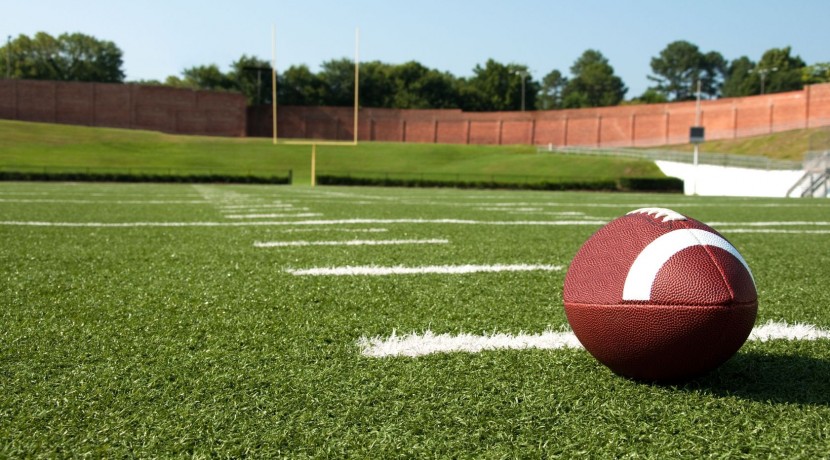Do College Athletes Get a Pass to Sexually Harass?
With so much money on the line, the asset’s value goes up while the victim’s declines
Humanists might assume that the general consensus on rape and other sexual assault is that these actions are criminal and inhumane. Surprisingly, there are many people who still believe rape is a minor crime, if that, while many victims go unheard or untrusted. According to the Rape, Abuse and Incest National Network (RAINN), a sexual assault occurs every two minutes in the United States with 97 percent of the perpetrators spending no time in jail.

Image credit: dehooks / 123RF
It was recently reported that in Missoula, Montana, a large number rape incidents have been ignored or deemed unpunishable. A federal investigation revealed that the majority of the area’s reported sexual assaults, some involving players from the University of Montana football team, were disregarded to the point of endangering the community’s female population. In fact, federal investigators found that Missoula County Attorney Fred Van Valkenburg had only pursued 14 out of 85 sexual assault complaints. Van Valkerburg claimed federal investigators had no business investigating his practices, and that neither he nor his office had done anything wrong. Victims were told they were only being spiteful and that “boys will be boys.” The conflict between the county and federal investigators continues.
The shocking negligence in investigating sex crimes can be even more pronounced when the offender holds a high level of celebrity status. An incident that’s receiving national attention following a front-page New York Times story involves a female student from Florida State University who accused Florida State’s star quarterback, Jameis Winston, of raping her in December of 2012.
During a night of partying at a local Tallahassee hot spot, the nineteen-year-old victim accepted a drink from a stranger who introduced himself as a football player. Witnesses say her behavior became much different after that, as if she became drunk instantly. She next found herself in the company of three unfamiliar men in a cab (the fare discounted with a Florida State student ID), blacked out, and came to in a strange apartment with one of the men on top of her forcing sexual intercourse. Afterwards, still in a clouded state, she was dropped off at her dorm. Once inside, she posted online pleas for help. After much convincing by a friend, the victim agreed to call the police. A campus police officer recorded her statement then escorted her to the hospital for examination.
Soon after, Officer Angulo, an investigator with the special victims unit, took over the case. Interestingly, the report was not filed for over two months even though the officer had sufficient leads as to who the offender was. Then nearly two weeks passed before Winston was contacted, however no DNA sample was sought. Angulo eventually suspended the case, claiming lack of evidence and also because the victim had become uncooperative, which she denies.
So, what was the problem? The suspect was a widely known, valuable college football star. The offender’s value easily trumped the victim’s.
The details and injustice of this case go on and on, the implications of which are nauseatingly obvious: people with high economic value are often protected from their crimes; those with valued talents and lack of moral foundation often seem to be exempt from the consequences of their unjust and inhumane actions.
At the moment the big conversation about college athletes is whether they should be paid for their performance on the field. However, it’s imperative that we examine society’s incompetence in teaching these sports heroes—and all young men—about how to behave in the bedroom.
In a National Institute of Mental Health study in the late 1980s, 84 percent of college men accused of rape said that what they did was definitely not rape, one in fifteen male students reported committing a rape or attempting to commit rape during the preceding year, and nearly one third of college men said they were likely to have sex with an unwilling partner if they thought they could get away with it.
And a 2006 study published in the journal Violence Against Women found that college men who played football, basketball, or soccer, or wrestled in high school were more likely to sexually coerce women, and they measured higher for sexism, hostility toward women, homophobia, and acceptance of violence.
During her college years, one in five women will be the victim of rape or attempted rape, according to the 2007 Campus Sexual Assault Study, and 90 percent of rapes are perpetrated by acquaintances. And yet 95 percent of college rapes go unreported because of shame, embarrassment, or the victim’s belief that reporting a sexual assault won’t lead to punishment of the offender and will make the victim’s life worse.
But just as we must educate young men to listen and learn what constitutes rape, it is vital for victims to speak up about the violations of their basic human rights. Calling attention to the issue can put pressure on the criminal justice system to intensify punishment for sexual criminals and to help stop the crimes from occurring. If you or someone you know has suffered sexual abuse, visit RAINN and learn how to get help.
UPDATE: Yesterday the AP reported that a University of New Mexico football player accused of sexually assaulting a female student on April 13 has been suspended from the team and is facing rape charges. Another awful story, but it appears so far it's being dealt with swiftly and appropriately.
